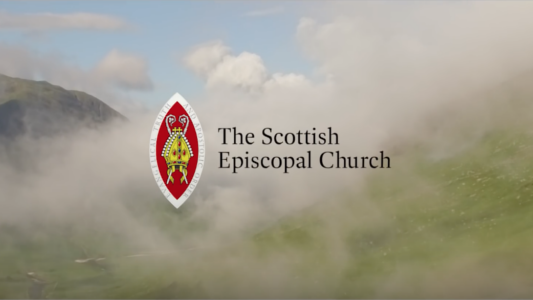1. Introduction
At the beginning of April 2006, a number of the provisions of the Charities and Trustee Investment (Scotland) Act 2005 came into force. This Act makes for extensive changes to the manner in which charities operate and are regulated within Scotland. In particular, it creates the “Office of the Scottish Charity Regulator” (OSCR). OSCR is the body which determines whether organisations should have charitable status, maintains a public register of charities, encourages and monitors compliance with the Act and investigates apparent misconduct and takes remedial action. The Act has a number of implications for Churches and the purpose of this note is to highlight some of these so that they can be drawn to the attention of your vestry and its members.
Almost all congregations enjoy status as charities in their own right and will have a registered charity number on the Charities Index created by OSCR. Whilst the Act makes provision for certain kinds of religious bodies to be accorded status as “Designated Religious Charities”, this is only available to such charities which meet specific criteria and the Scottish Episcopal Church is not one of the Scottish denominations which has this status. This means that congregations are subject to the full provisions of the Act in the same way as any other charity.
It is important that all individuals holding office in the Church are aware of their responsibilities under the new Act. The principal areas of compliance identified in the Act are set out below. OSCR has also published its own “Guidance for Charity Trustees” which is available from the OSCR website. The website is a useful resource for assistance on various aspects of the legislation. (www.oscr.org.uk).
2. Role of Vestry Members
Under the Act, “charity trustees” are defined to mean “the persons having the general control and management of the administration of a charity”. This would include vestry members and it is recommended that all existing and future vestry members be provided with a copy of this note. Similarly, Vestry members should familiarise themselves with the Guidance for Charity Trustees available from the OSCR website.
Perhaps somewhat confusingly, many congregational constitutions will also include reference to “trustees”, other than the members of the vestry. The main purpose of those trustees is normally to hold property on behalf of the congregation. In most cases, however, vestry members will be the individuals having the control and management of the administration of the charity for the purposes of the Act and will therefore fulfil the role of “charity trustees”.
It is important to note that under the Act, certain limited categories of people are disqualified from serving as charity trustees (eg vestry members). If such a person serves as a charity trustee they commit a criminal offence. Principally, the excluded categories are those people who have been involved in dishonesty or financial insolvency. In order to ensure that a disqualified individual is not unwittingly appointed to the position of charity trustee (for example by being elected as a vestry member), it is recommended that any person serving on a vestry or seeking election or appointment to vestry should sign a short declaration confirming the fact that they are not disqualified. A style of declaration is available for downloading from the SEC website. It is recommended that completed declarations should be held by the vestry secretary with the vestry records. Clergy who sit on vestry should similarly be invited to sign such a declaration. (OSCR has power to allow an individual who would otherwise be disqualified but an application would need to be made to OSCR before such an individual were to be appointed as a charity trustee.) It should also be noted that if an individual, having been appointed as a charity trustee, at some later date becomes disqualified that person should immediately resign as a charity trustee.
HM Revenue and Customs also recommend the completion of a ‘fit and proper person’ declaration so as to minimise the risk of loss of charitable tax reliefs. Separate guidance on this is available on the SEC website.
The Act sets out specific duties for charity trustees. A charity trustee must act in the interest of the charity and must, in particular:-
a) seek, in good faith, to ensure that the charity acts in a manner which is consistent with its purposes. This will mean, for example, that none of the assets of the congregation are applied to any non-charitable purpose.
b) act with the care and diligence that is reasonable to expect of a person who is managing the affairs of another person. This requirement would include regular attendance at meetings, careful attention to written reports and minutes and the ascertaining, whether by the questioning of other office-bearers attending meetings or otherwise, of all information necessary for the making of decisions. At times, vestry members may be called upon to take decisions concerning matters about which they are not competent to make judgements. In such cases, the safe course is to postpone taking any decision until further advice has been obtained from a suitably qualified person. This might include consulting with the Diocesan Registrar or Diocesan Treasurer.
c) ensure that the charity complies with any direction, requirement, notice, or duty imposed on the charity by virtue of the Act. This would cover matters such as the requirement to show that the congregation is a charity on a range of stationery and other documentation (see further below) and the duties in regard to the preparation and lodging with OSCR of accounts and the annual return. Any breach of this duty is to be treated as “misconduct” in the administration of the charity. Where there has been any such breach of duty, all charity trustees must take such steps as are reasonably practicable to ensure that any such breach is corrected by the trustee concerned and not repeated and that any trustee who has been in serious and persistent breach of such duties is removed as a trustee.
d) in circumstances capable of giving rise to a conflict of interest between the charity and any person responsible for the appointment of the charity trustee, the trustee must:-
(i) put the interests of the charity before those of the other person, or
(ii) where any other duty prevents the charity trustee from doing so, disclose the conflicting interest to the charity and refrain from participating in any deliberation or decision of the other charity trustees with respect to the matter in question.
The matters listed below are further provisions with which the vestry must ensure compliance.
3. Remuneration of Charity Trustees
Under Section 67 of the Act, a charity trustee may not be remunerated for services provided to the charity (including services provided under a contract of employment) unless certain conditions are satisfied. The conditions are:-
a) that the maximum amount of the remuneration:-
(i) is set out in a written agreement between the “service provider” and the charity under which the service provider is to provide the services in question, and
(ii) is reasonable in the circumstances
b) that, before entering into the agreement, the charity trustees were satisfied that it would be in the interest of the charity for those services to be provided by the service provider for that maximum amount.
c) that, immediately after entering into the agreement, less than half of the total number of charity trustees of the charity receive remuneration from the charity and
d) that the charity’s constitution does not contain any provision which expressly prohibits the service provider from receiving the remuneration.
Payment of stipend, for example, is likely to fall within the scope of these provisions. Most clergy will be paid standard stipend and should have received written notification of that fact. Where stipend is paid on some other basis, similarly the arrangement should be reflected in writing in a manner which complies with the provisions set out above.
It should be noted that there are also detailed provisions which apply where a charity trustee might benefit from remuneration paid by the charity to a “connected person”. A person is “connected” with another, for example, by marriage, civil partnership or other specifically defined relationship. In such circumstances a written remuneration agreement, complying with the provisions mentioned above is again required. If any vestry member or any close relative of a vestry member is being paid whether directly or indirectly for providing services for the congregation, e.g. for carrying out repairs to the church building, it will be necessary to ensure that a remuneration agreement is entered into.
There is no requirement for a remuneration agreement where the charity’s constitution contained a provision authorising remuneration which was in force on 15 November 2004.
The purchase of trustee indemnity insurance is permitted under an amendment to the Act provided it complies with certain conditions.
4. Trustee Conflict
Vestry members should take care to avoid getting into the situation where their duties to the congregation could be said to conflict with their own personal interests. In such circumstances, a vestry member should not take any part in discussions or decisions involving the matter concerned. Equally, a vestry member should not use his or her position for personal financial gain or advantage.
5. Obligations to Third Parties
The range of work undertaken by some congregations may inevitably entail the assumption of obligations towards third parties, for example, through the making of contracts. Particularly where the fulfilling of contractual obligations may potentially involve major financial expenditure, vestry members should satisfy themselves that sufficient funds are available or assured. Where appropriate, legal advice on the terms of any contract being entered into should also be sought.
6. Civil Law Responsibilities
Congregations are finding that they are becoming subject to an increasing burden of regulation in the form of various pieces of statutory legislation. These cover matters as diverse as child protection, health and safety, employment law, fire and food safety, licensing, data protection, smoking and discrimination legislation. Vestry members should keep aware of the legislation which may affect the congregation’s activities.
7. Annual Returns, Supplementary Monitoring Returns and Accounts
Charities are required to file an Annual Return provided by OSCR. This was initiated in 2005 and guidance was issued to congregations regarding completion of the form. OSCR also issues a Supplementary Monitoring Return to charities with an income of over £25,000. The Annual Return and Supplementary Monitoring Return are issued automatically shortly after the charity’s financial year end date. The deadline for the submission of returns is 9 months after the financial year end. The General Synod Office has issued guidance on this subject, a copy of which is available from the Vestry Resources section of the SEC website.
Charities are also required to file annual accounts with OSCR. Under the Charities Accounts Regulations, these must be filed within 9 months of the financial year end. Separate guidance on the accounting provisions is available from the SEC website. Vestry Treasurers are reminded that proper accounting records must be kept. Guidance from OSCR states that charities must keep accounting records of sufficient detail that they are able to:
- Show, day by day, the money received and spent by the charity
- Record the assets and liabilities of the charity
- Disclose the financial position of the charity at any time
- Prepare a statement of account in line with the Regulations
Please note also that accounting records must be retained for 6 years from the end of the financial year.
8. Notifications to OSCR
Under the Act prior consent must be obtained from OSCR to any change to a charity’s constitution so far as the change relates to the purposes of the charity. It is highly unlikely that congregations will make changes to their purposes with any degree of frequency, particularly given that constitutions should be expressed to be subject to the Code of Canons.
In relation to other changes to constitutions (i.e. changes not relating to purposes), these must be formally notified to OSCR within three months of the date of the change.
Charities must also, within three months, give OSCR formal notice of:-
a) any change in:-
(i) the principal office of the charity, or
(ii) where it does not have such an office, the name or address of the charity trustee specified in the Register.
b) any change in any other details set out in the charity’s entry in the Charity Register.
The current principal office of the charity will be stated in the Annual Return. Where the principal office is located at the home address of a church officer, it should be remembered that notice will require to be given of any change in the charity’s address if, for example, a change is triggered by the retirement or resignation of the Church Officer or if that individual moves house.
9. Investment
The Act gives charities widened powers of investment. The old restrictions which required investments to be split between narrower and wider ranges have been abolished. Vestries should be scrupulous in discharging their duties, all in accordance with the principles of good stewardship. In particular, care should be taken to instruct that all funds are soundly invested. The suitability and need for diversification of investments must be considered and vestries must consider whether they need to obtain “proper” advice (essentially advice given by an appropriately qualified person) before investing and when reviewing investments. Alternatively, investment management functions can be delegated to professional fund managers.
Some of the assets held by the congregation may have been bequeathed or gifted subject to specific conditions as to use or indeed permitting only income to be expended. Care should be taken to ensure that such conditions are strictly observed.
10. Charity Notepaper and other Official Documentation
The Charities References in Documents (Scotland) Regulations 2007 affect all relevant documents issued on or after 1st April 2008. In general, these set out requirements as to information which must appear on “official” charity documents.
The main categories of documents listed in the Regulations likely to be of relevance to congregations are:‑
(a) Business letters and e-mails;
(b) Advertisements, notices and official publications;
(c) Any document which solicits money or other property for the benefit of the charity;
(d) Bills of Exchange, Promissory Notes, endorsements and orders for money or goods;
(e) Bills rendered;
(f) Invoices, receipts and letters of credit;
(g) Annual Accounts;
(h) Educational or campaign documentation;
(i) Contractual documentation.
Importantly, since 1st August 2010, charity websites also fall within the scope of the Regulations. 2011 Regulations now specify that the relevant details must appear on the home page of a website operated by or on behalf of the charity
Guidance on the application of the Regulations is available from the OSCR website. Certainly, the list appears very comprehensive and will catch quite a number of documents used by congregations such as church notepaper and magazines as well as advertisements intimating church services or vacancies. Electronic, as well as written, communications are covered. It is not necessary for the information to appear on the notice board outside a church. It appears that OSCR interprets the Regulations as applying only to documents issued “externally” and that documents circulated within a charity exclusively to its own members need not comply with the Regulations. However, since many “internal” documents (for example, weekly service sheets) would normally be issued to both members and those who might not be members, the best approach would be to ensure that all such documents comply with the Regulations. Freewill offering envelopes, if issued only to church members, will not come within the Regulations but if they are distributed more widely, the prescribed information will have to be provided. Alternatively, if the information is contained in a covering letter accompanying a batch of envelopes, this is likely to fulfill the statutory requirements.
The prescribed information – which has to appear “in legible characters” – is as follows:‑
- The charity number of the charity, e.g., SC012345;
- The congregation’s name as entered in the Scottish Charity Register;
- Any other name by which the congregation is “commonly known”; and
- One of the following terms:‑
- Charity;
- Charitable body;
- Registered charity;
- Charity registered in Scotland;
- Scottish charity; or
- Registered Scottish charity
A number of congregations use a name on their notepaper and in other documentation which can differ from their “official name” on the Charity Register. Whilst they can continue to do so provided both names appear on all the required documentation, this practice may result in considerable confusion.
11. Fundraising Activities
Regulations have been introduced to tighten up on certain aspects of charity fundraising. These will require professional fundraisers to have a written agreement with the charity before fundraising on their behalf.
John F Stuart
Secretary General
October 2007 (updated February 2012)
The General Synod of the Scottish Episcopal Church does not accept responsibility for any loss or liability which may arise from reliance on information or expressions of opinion contained in this document.
General Synod of the Scottish Episcopal Church
Scottish Charity No SC015962







